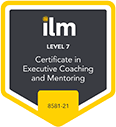There is no consensus nor conclusion neither a clear definition for executive, leadership, professional and business coaching. All of them are in fact different types of professional coaching which is different from life coaching as its primary focus is on professional rather than personal issues. Whitmore (2017) describes performance coaching as “unlocking a person’s potential to maximise their own performance. Lee (2003) provides a definition of leadership coaching as: “concerned with enabling managers to change, providing a space to reflect and come to understand themselves and ultimately to release and channel their creativity towards their organisational goals”. “Executive coaching is primarily about facilitating personal change through allowing clients to experiment with different behaviours”. Executive coaching more broadly covers work with executives across the organisation, senior as well as more junior high potentials. It is used most effectively by those who have significant responsibility for the current and future success of an organisation and who have a potential and will to grow, develop and change. Business coaching goes beyond executive coaching in that it also assists the business owner or key person within a company to develop the business as well as themselves. Ideally business coach should be experienced in business development, too.
Building on my professional experience executive and leadership coaching help leaders/executives become more self-aware to carry out their leadership role more effectively. This for the benefit of both the leader and his or her people and to help grow more conscious, learning and empowering working environments and cultures. Executive and leadership coaching if done well have a power not only to transform the individuals but also their teams and organisation. Moreover, effective coaching is very good at influencing changes in management and leadership behaviours, confidence and work performance. Performance coaching is focused on raising the coachee’s level of performance. Whitmore describes it as “a way of being that stems from a coaching ethos – a belief in the capability, resourcefulness, and potential of yourself and others which allows you to focus on strengths, solutions, and future success, not weakness, problems, or past performance”. Transformational coaching on the other hand is focused on changing behaviours and capabilities through shifting the thinking of the coachee. Transformational coaching is much more about influencing the coachee to start to think, feel and act differently about the situations they are concerned with. The chance of learning and change being transferred back into the live situation is much higher when this felt shift occurs than when people simply leave with good intentions. “Transformational coaching is in fact a type of developmental coaching since it too is concerned with helping the client to think and act differently in response to a dilemma. However, it proposes that developmental change can be achieved quite quickly or even can be manufactured whereas developmental coaching might even be a lifelong process”.

From a practical perspective a coach working in or for an organisation would be expected to tackle the breadth of methods, tools and approaches covered by those labels as discussed above. Coaches need to be able to draw on a range of useful models and methods depending on their client and context. However, in doing this the coach needs to be confident that the approach fits with the learning style and personality of the coachee and be flexible to adapt to maximize leadership development and coaching effectiveness.
Written by Patrycja Orzeszyna © 2019 ZenCoaching.eu. All rights reserved.
To find out more about ZenCoaching practice and schedule an exploratory coaching session with me please follow the link.





